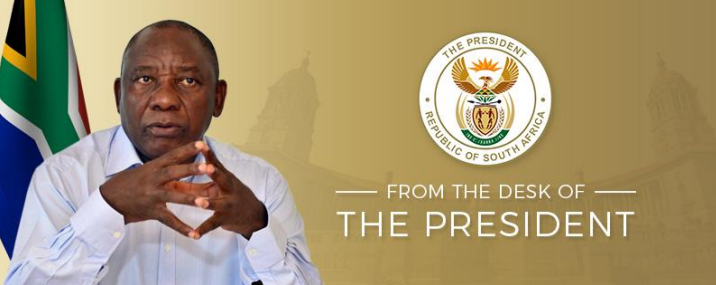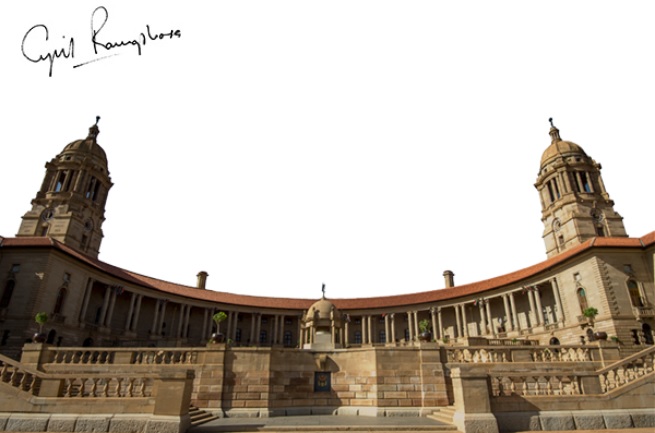
Dear Fellow South African,
Since the advent of democracy nearly 30 years, South Africa has pursued an independent foreign policy.
With the outbreak of Russia-Ukraine conflict, however, there has been extraordinary pressure on the country to abandon its non-aligned position and take sides in what is in effect a contest between Russia and the West. Other countries on the African continent and elsewhere have been put under similar pressure.
One of the most impressive features of the international anti-apartheid movement was that it drew support from countries and citizens from across continental and ideological divides. The struggle to end apartheid was taken up in capitals from Africa to Europe, from the Americas to Asia. Our leaders worked hard to gain the support of governments, lawmakers and citizens across the divisions of the Cold War.
That experience – of reaching out across political divides and building relations with very different countries – has helped to shape our foreign policy. This has been coupled with a firm belief in the value of an inclusive multilateral world order and the peaceful resolution of conflict through dialogue.
This explains South Africa’s membership of the Non-Aligned Movement, a forum of 120 countries that are not formally aligned with or against any major power bloc. South Africa has also used its membership of other international forums like the G20 and BRICS group to advance the views and interests of countries in Africa and the rest of the Global South.
Throughout, we have been firm on this point: South Africa has not been, and will not be, drawn into a contest between global powers.
That does not mean that we do not have a position on the Russia-Ukraine conflict. Consistent with our stance on conflicts in other parts of the world, South Africa’s view is that the international community needs to work together to urgently achieve a cessation of hostilities and to prevent further loss of life and displacement of civilians in Ukraine. It needs to support meaningful dialogue towards a lasting peace, which ensures the security and stability of all nations.
As a country, we are committed to the articles of the United Nations Charter, including the principle that all members shall settle their international disputes by peaceful means. We support the principle that members should refrain from the threat or use of force against the territorial integrity or political independence of other states.
Our position seeks to contribute to the creation of conditions that make the achievement of a durable resolution of the conflict possible. The reality is that the Russia-Ukraine conflict – and the tensions that underlie it – will not be resolved through military means. It needs to be resolved politically.
We do not accept that our non-aligned position favours Russia above other countries. Nor do we accept that it should imperil our relations with other countries.
Last year, I have travelled to Washington to meet President Joe Biden and to London to meet Prime Minister Rishi Sunak. In my talks with both leaders, I restated our non-aligned position and explained that South Africa believes that this conflict should be resolved through dialogue. In August, I will be hosting the leaders of Brazil, India, China and Russia for the summit of the BRICS countries. South Africa has strong and enduring relations with all these countries.
In all our interactions with these countries, we restate our belief that the United Nations remains the only viable mechanism through which the global community can strive for peace and common development.
Yet the conflict in Ukraine has highlighted the weaknesses in the structure and practices of the United Nations. The composition of the UN Security Council, in particular, does not reflect the realities of the current global landscape. It needs to be overhauled so that there is equitable representation and a more inclusive mechanism for resolving international disputes.
South Africa is a sovereign state, governed by a democratic Constitution and committed to the consistent application of international law. We will continue to fulfil our obligations in terms of the various international agreements and treaties to which we are signatories.
These are among the principles that inform our approach to allegations that arms were loaded onto a Russian vessel that docked in Simon’s Town late last year. Since we do not have concrete evidence to support these allegations, we are establishing an independent inquiry headed by a retired judge to establish the facts.
South Africa’s position on this issue was well explained by my envoy, Prof Sydney Mufamadi, and his delegation who recently travelled to Washington DC for discussions with representatives of the United States government.
We are determined, in both word and action, to maintain our position on the peaceful resolution of conflict. Guided by the lessons of our history, we will continue to resist calls, from whatever quarter, to abandon our independent and non-aligned foreign policy.
With best regards,
